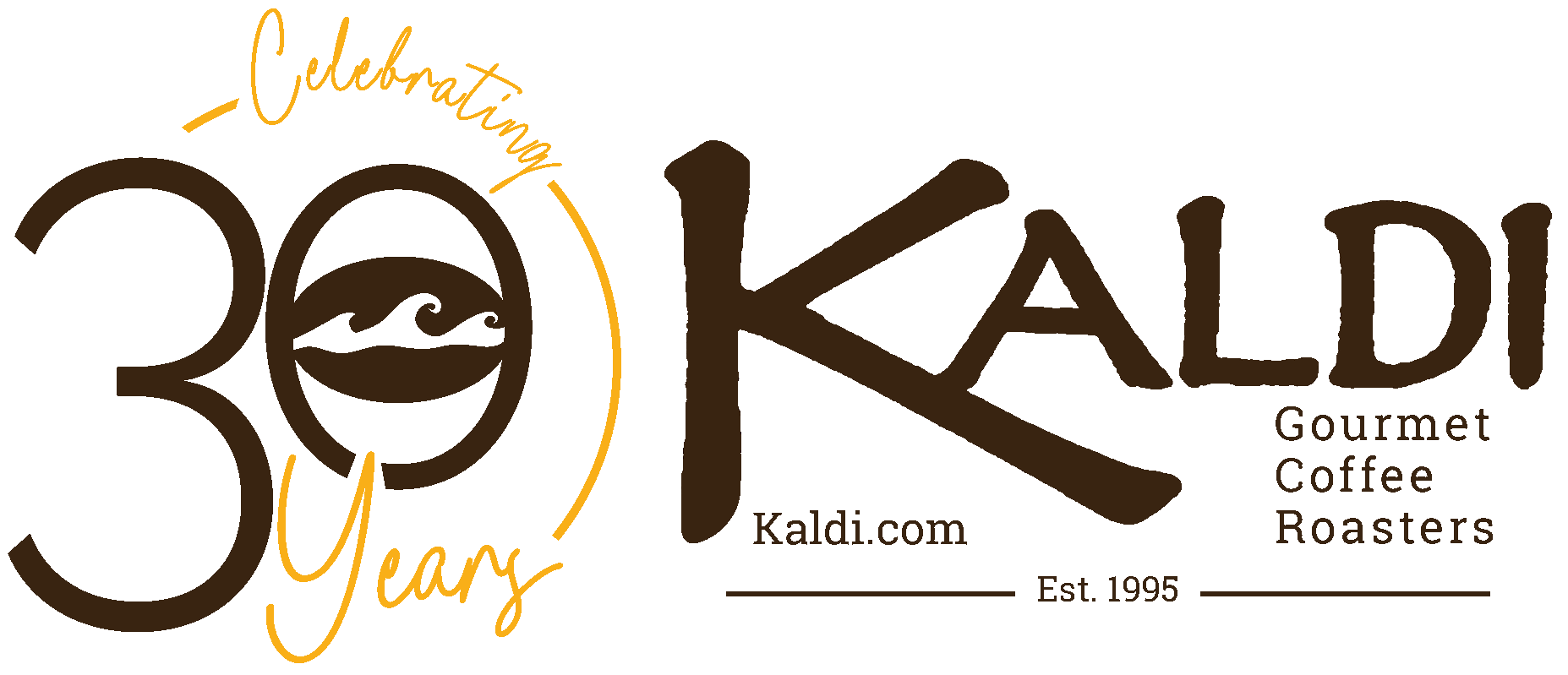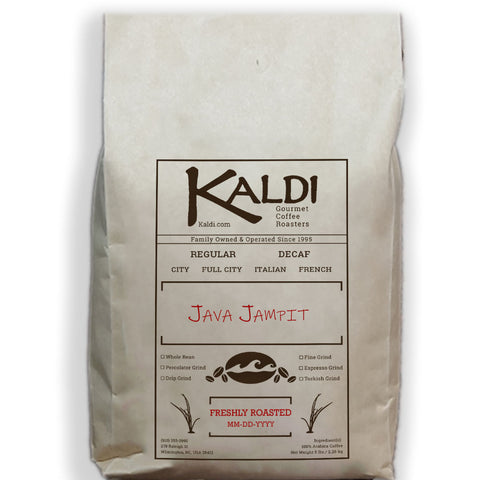
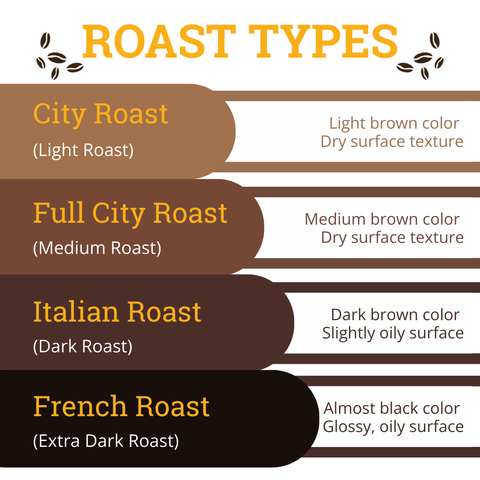
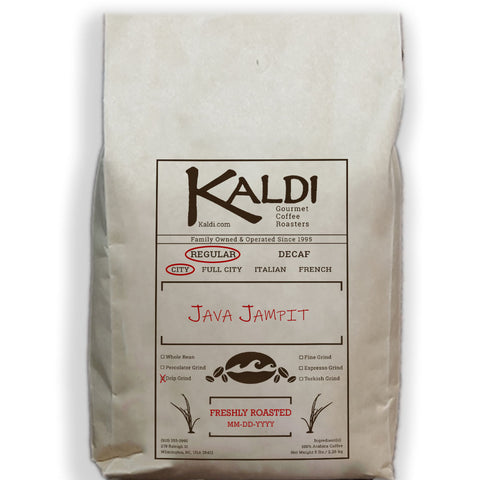
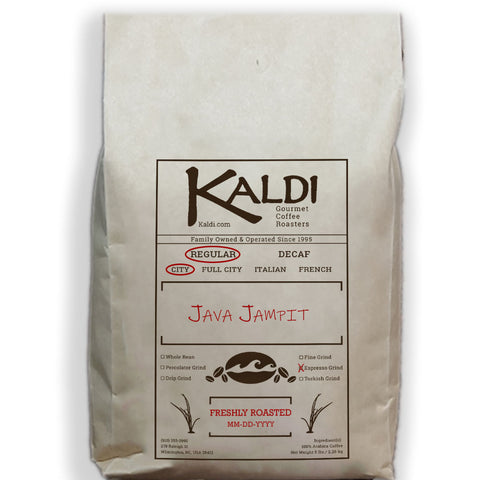
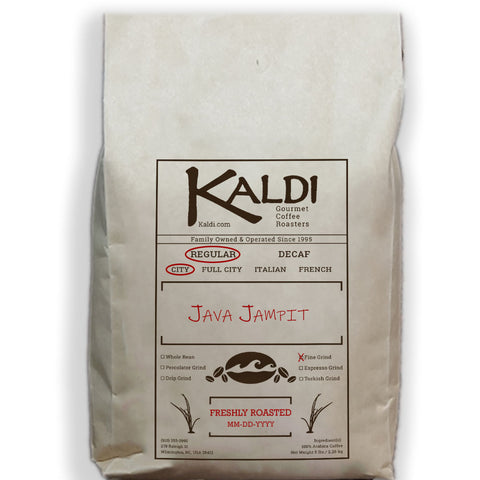
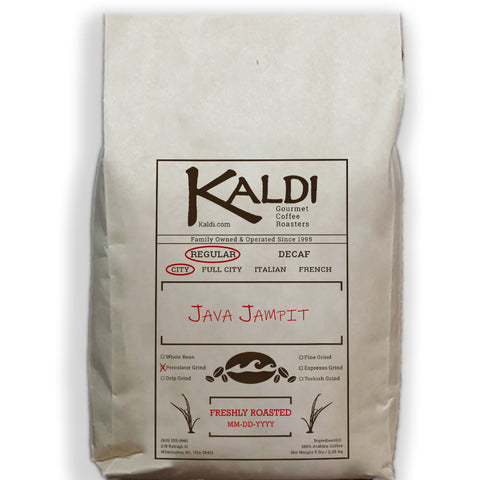
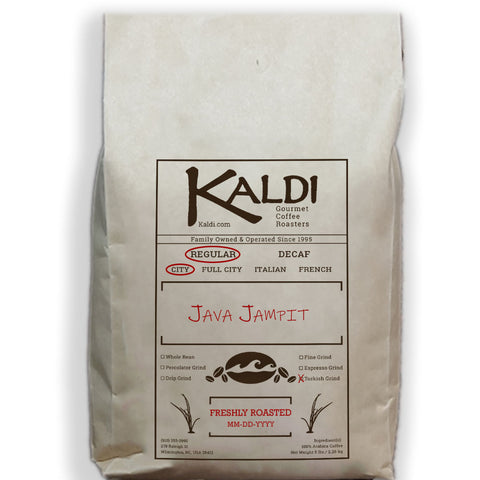
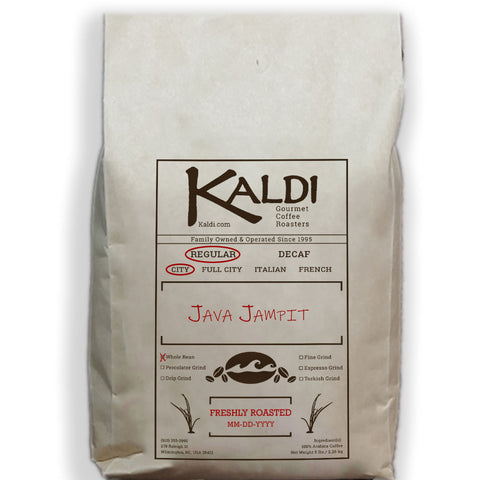
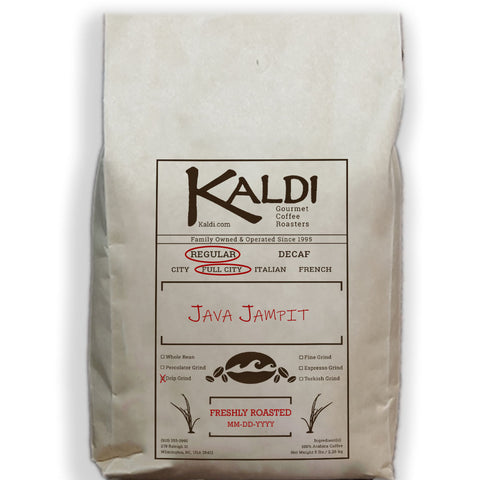
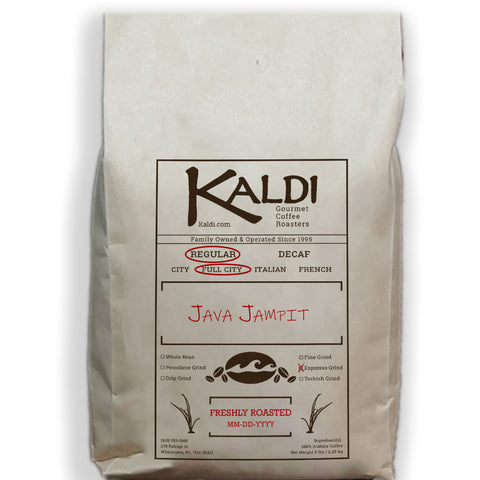
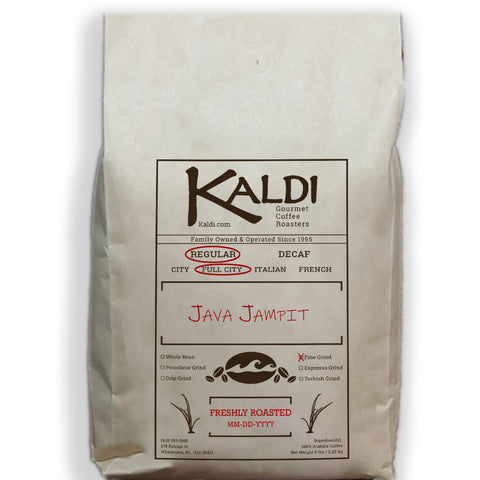
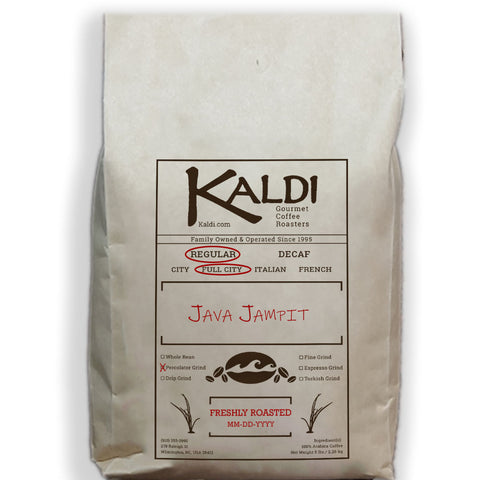
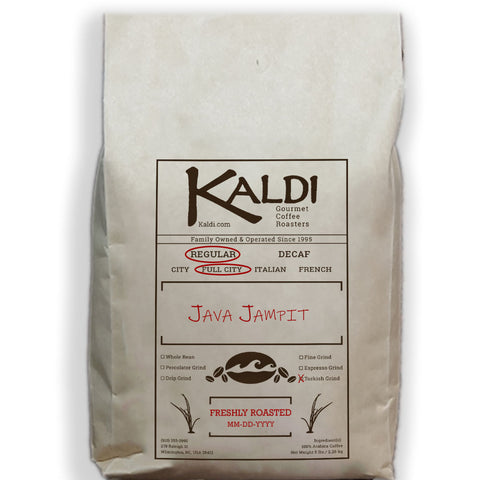
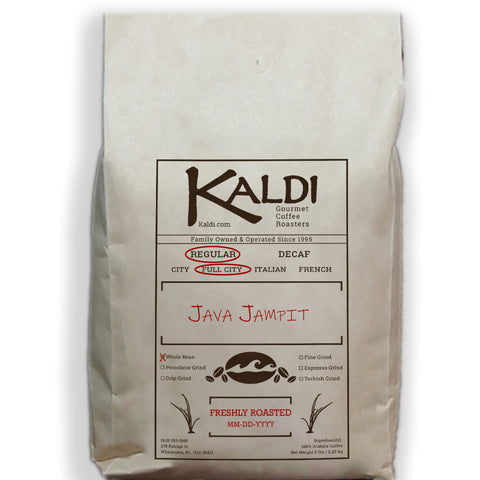
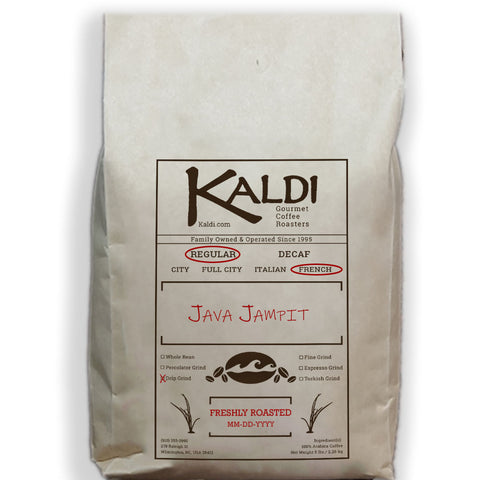
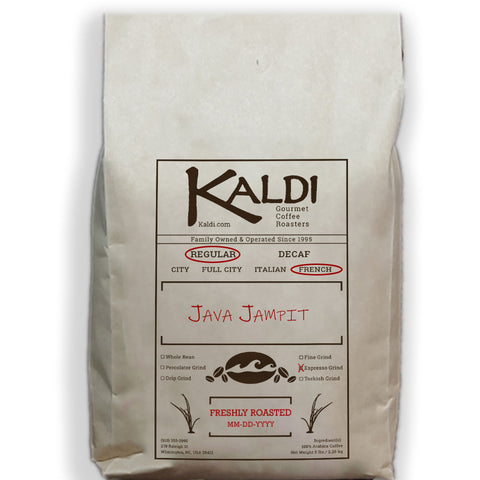
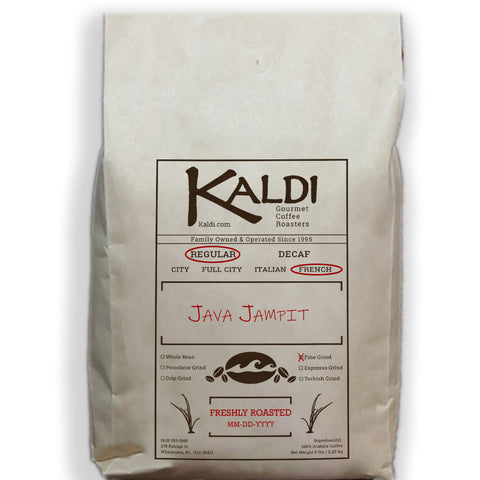
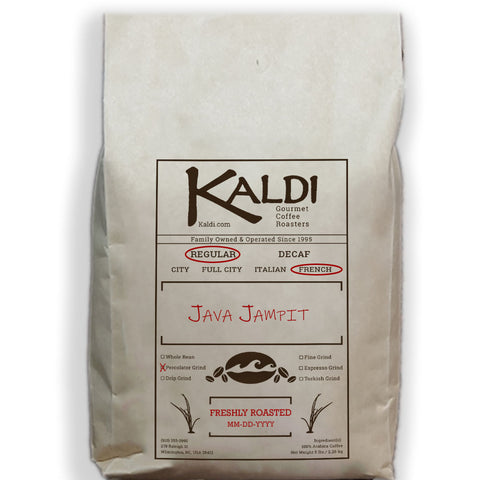
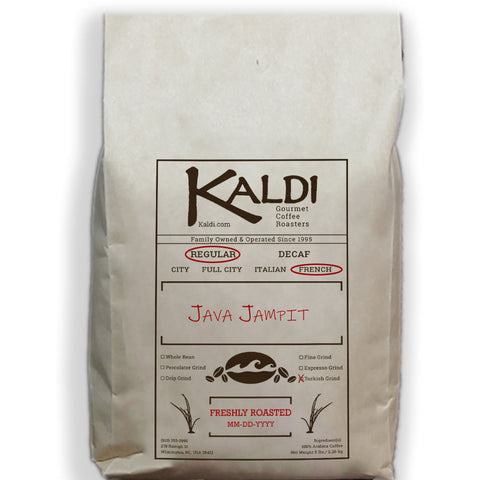
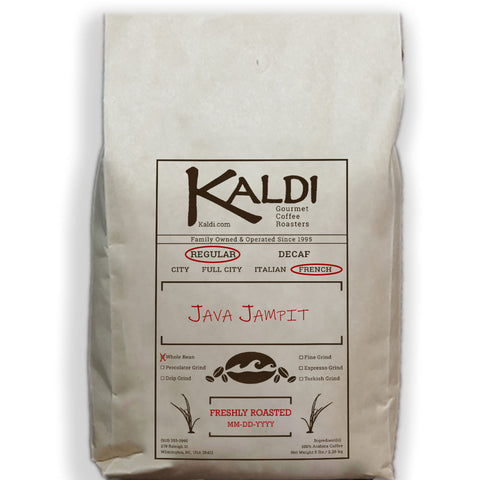
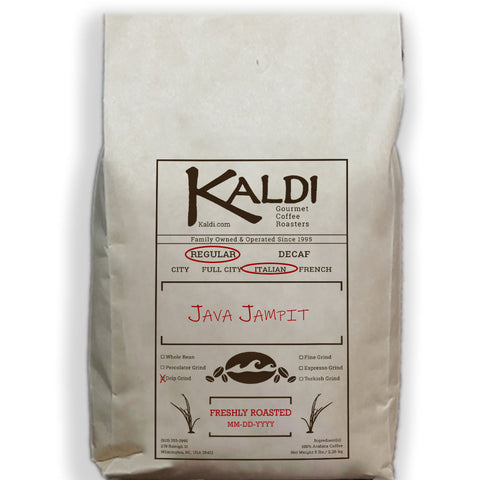
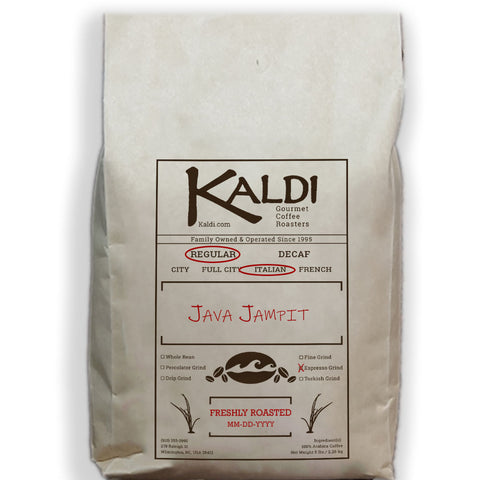
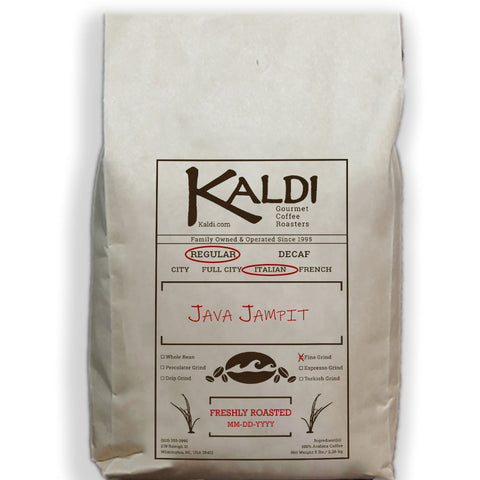
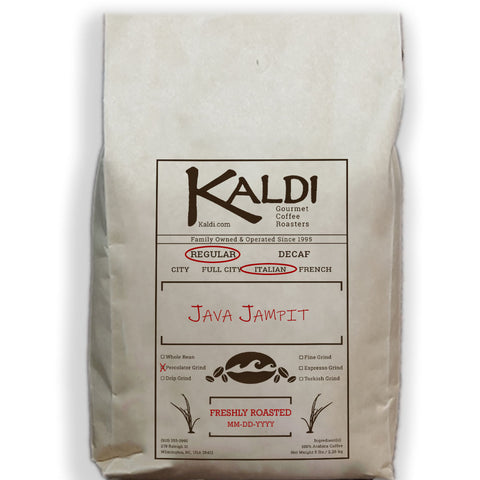
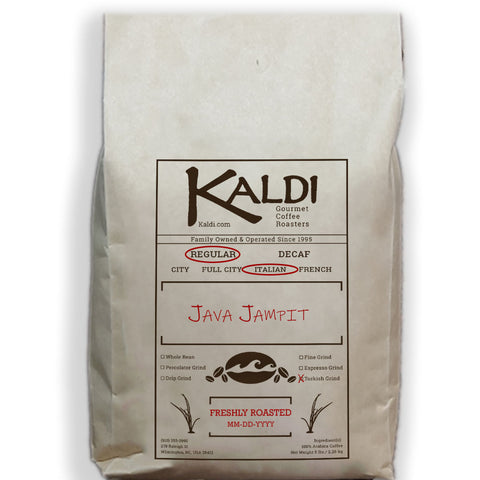
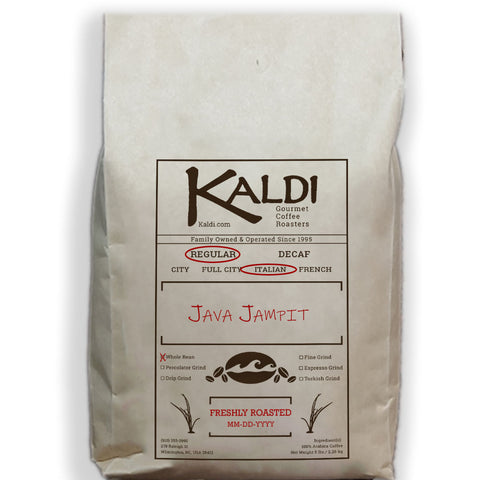
Java Jampit
Java Jampit coffee is available to purchase in 5 lb increments
- Guaranteed Freshest Bulk Coffee Beans Direct From The Roaster
- Orders in by 10am are roasted and shipped same business day
- Choose from Four Different Custom Roast Types
- Free Shipping on wholesale coffee orders 20lbs+ more discounts at 100lbs
Java Jampit
In the late seventeenth century, the Dutch governor of India sent Typica seedlings from Yemen to the Dutch governor of Jakarta, the capital city of Indonesia. The Dutch wanted to grow their own coffee so that they could bypass the Arab merchants’ monopoly on the coffee trade. After a few poor harvests, the plants grew, and in 1711 the first coffee exports were sent from the island of Java to Europe by the Dutch East India Company. Dutch colonialists established large plantations on Java, and the island soon became the largest coffee supplier to Europe, and would continue to hold this distinction until the middle of the nineteenth century when it was eclipsed by Brazil. The island was virtually synonymous with coffee for many decades, and to this day coffee is commonly referred to as “java.”
The Dutch East India Company held a global monopoly on the coffee trade, and recorded enormous profits in Amsterdam. Meanwhile, Javanese families who grew and picked the coffee were left struggling to make a living. In many cases, they were starved because of the colonial government’s demand for coffee production over the production of traditional staple foods such as rice. When the people of Java began to rebel against the working conditions of the colony, the Dutch government enacted a policy of “enforced cultivation,” forcing farmers to grow export crops on 20 percent of their land, or alternatively provide 60 days per year of unpaid labor on public projects for the common good. All our specialty coffees are at the lowest wholesale prices so not only are you getting the freshest gourmet coffee you are getting the best prices on coffee beans direct from the roaster!
In 1876, the coffee rust disease swept through Indonesia, wiping out most of the Arabica strains. Robusta was introduced to East Java in 1900 as a substitute. Robusta was a hardier plant, and could be grown at lower altitudes. Today, the majority (85%) of the coffee grown in Indonesia is Robusta, while the rest is Arabica.
The Dutch-owned plantations on Java were nationalized in the 1950s, soon after independence and managed as state-owned plantations. This revitalized the industry and new varieties of Arabica were introduced in the 1950s, especially in Sumatra and Sulawesi, which became the dominant coffee producing regions. These varieties were also adopted by smallholders through the government and various development programs.
Indonesian Kopi Culture
Coffee has been a big part of Indonesian culture since the plant came to the archipelago in the early 18th century. In major cities like Jakarta and Medan, coffee shops are ubiquitous. They can be found in shopping malls, office buildings, and in roadside stalls, called warung kopi, which are packed everyday with customers buying glasses of coffee or coffee candies.
There is a dizzying array of traditional coffee drinks available in Indonesia. Most Indonesians enjoy their coffee with lots of sugar and cream or condensed milk. In rural Sumatra, Kopi Kahwa, coffee leaves brewed with hot water, is popular. Kopi Tarik, or pulled coffee, is made by repeatedly pouring newly brewed coffee from one container to another using a cotton strainer. This gives the coffee a special thickness and rich taste.
In Java, Kopi Jahe or ginger coffee, is popular. It is made by mixing brewed coffee with ginger and palm sugar. It is said to have medicinal properties and is often prescribed for combating the flu.
Kopi Joss is Javanese coffee that is prepared by immersing a piece of burning charcoal in the coffee as its brewing to give it a smoky or “baking” taste. The name is taken from ‘joss’ sound of the emerging charcoal.
Kopi Bumbu, or spiced coffee, is common all over Indonesia, and is usually brewed with a mix of cinnamon, cardamom, clove and sugar. Spiced coffee was brought to Indonesia by Middle Eastern immigrants to the region.
Kopi Sereh is coffee brewed with lemongrass. This makes the drink highly aromatic and sweet and citrusy.
Perhaps the most infamous coffee to come out of Indonesia is Kopi Luwak, coffee that includes the partly-digested coffee cherries eaten and defecated by the Asian palm civet, a shy nocturnal mammal that resembles a raccoon. The undigested, partially fermented seeds are harvested from the droppings and brewed like normal coffee. There has been a lot of discussion of civet coffee in recent years, and some controversy. Some believe that the fermentation process that goes on inside of the animal’s intestines improves the flavor, which is why it can command such a high price on the market, sometimes as much as $500 per pound. But it is widely agreed in the industry that the internal fermentation does little for the flavor. Civet coffee is considered by most experts to be merely a novelty, and there is some evidence that it can might in fact be harmful to the human body.
All our specialty coffees are at the lowest wholesale prices so not only are you getting the freshest gourmet coffee you are getting the best prices on coffee beans direct from the roaster!